Anxiety is one of the most common mental health issues. It does weird things to your mind that can be unpleasant and sometimes even unpredictable.
But did you know anxiety can also cause physical symptoms? If you didn't, you're not alone. Most people are not aware of the fact that anxiety can lead to physical symptoms and often mistake the same for an underlying disease.
In this blog, we'll talk about the common physical symptoms of anxiety and, more importantly, how you can deal with them. Before that, let us discuss the common types of anxiety disorders.
What Are the Types of Anxiety Disorders?
There are different types of anxiety disorders: -
- Generalized Anxiety Disorder
- Panic Disorder
- Phobias
- Separation Anxiety
- Obsessive-compulsive Disorder
What Are the Common Physical Symptoms of Anxiety?
Anxiety physically impacts your body, which can affect your daily life and overall health. Let us discuss a few physical symptoms of anxiety: -
1. Shortness of Breath
Shortness of breath is a symptom of anxiety that leads many people to worry that they might be having a heart attack or lung issues. But most times, it is anxiety. Shortness of breath occurs when you breathe too quickly. When your heart starts beating faster, it increases the rate at which your blood is circulating, due to which you may need more oxygen. And when you take in too much oxygen inside and exhale too much carbon dioxide, it leads to hyperventilation.
2. Dizziness
You might feel dizzy, faint, or unsteady while anxious. It is a result of hyperventilation. It can also be, however, due to other issues, like muscle tension in the neck. People with anxiety or during pain attacks might feel lightheaded, and some may also experience chronic dizziness and difficulty balancing themselves.
Dizziness can also occur due to vasovagal syncope. Vasovagal syncope occurs when your body overreacts or is triggered due to certain factors like blood, needles, emotional distress, or trauma. It leads to a drop in blood pressure making the person feel dizzy.
3. Heart Palpitation
Heart palpitation is one of the most troubling physical symptoms of anxiety, as it can get pretty intense for some people. People that suffer from heart palpitations might feel their heart skipping beats, heart pounding, or simply getting a heart attack. It can be scary and make you feel like it is dangerous.
But, whenever you have palpitation due to anxiety, remember that it will not harm you and will typically go away in a few seconds or minutes. As it eases, you will start to feel much calmer and better.
However, if you experience heart palpitations along with chest pain, dizziness, or trouble breathing, it is better to seek professional help without wasting time.
4. Digestive Discomfort
Anxiety can affect your digestive system and cause certain gut issues. It triggers your body's fight-or-flight response. When that happens, hormones are released in your body. These hormones are neurotransmitters that send messages to the brain, putting the body on high alert.
Some of these hormones reach the gut and cause gastrointestinal issues like indigestion, diarrhea, nausea, irritable bowel syndrome, loss of appetite, etc.
How Do You Deal with These Physical Symptoms of Anxiety?
When you suffer from an anxiety disorder, your first goal is to find ways to get rid of the physical anxiety symptoms. For instance, you might take medicines to treat digestive issues caused by your anxiety. But what you may not realize is that the best way to get rid of those symptoms is to focus on bringing your anxiety under control. Once you do that, these physical symptoms will be gone by themselves.
Here's what you can do: -
1. Relax Your Body
Anxiety leads to stress. So, to relieve anxiety, you need to let your stress out. You can start with some breathing or relaxation exercises. Start with controlling your breath. Avoid taking in too much air and not too quickly. If you like, you can also start working out. Keeping yourself physically active is a great way of keeping anxiety at bay. It will help you relieve your tension.
2. Sleep Well
A good and deep sleep prevents the escalation of anxiety. It lowers your emotional reactivity and helps you feel calmer and view life more positively.
3. Learn About Your Disorder
The best way of dealing with your health issues is to know whatever is going on in your body. Try to find the root cause of your anxiety, whether it is something that makes you feel emotional, triggers, or alarms you. You can also consult your healthcare provider for better information and guidance. Depending on how bad your anxiety is, your healthcare provider may suggest supplements for anxiety.
4. Quit Smoking and Alcohol
Tobacco and alcohol can worsen your anxiety. Sometimes, people may use these as an emotional crutch. Also, try to cut the consumption of caffeine as much as possible.
5. Follow a Healthy Diet
A healthy diet filled with nutritious fruits and vegetables consisting of nutrients, vitamins, and minerals is linked to reduced anxiety and depression. Try adding foods like nuts, avocados, and whole grains., that are rich in magnesium for anxiety. How does magnesium for anxiety work exactly? Well, according to research, magnesium helps in regulating neurotransmitters, which send messages throughout the brain and body. This can reduce symptoms of anxiety and improve neurological health.
6. Supplements
While there are foods that possess certain ingredients that help relax the mind and body, they may not be enough. When dealing with this issue, it’s also wise to invest in supplements for anxiety to treat the symptoms effectively. Aside from magnesium, look for supplements that have chamomile benefits as well. This plant possesses antioxidants that help calm the mind. But if you’re not a fan of consuming pills or find it difficult to swallow any pill while anxious, you do have the option of oral strips which are another easy and effective form of supplements for anxiety.
Wrapping Up
Stress and worries are a part of your life. However, if there's too much stress and it doesn't seem to go, there could be consequences, majorly a severe anxiety disorder. So, before it gets too bad, follow the above tips and keep anxiety at bay. If the situation gets out of hand, consult your healthcare practitioner for professional treatment.
References
Feriante J, Bernstein B. Separation Anxiety. [Updated 2022 May 15]. In: StatPearls [Internet]. Treasure Island (FL): StatPearls Publishing; 2022 Jan-. Available from: https://www.ncbi.nlm.nih.gov/books/NBK560793/
Robson A. Dyspnoea, hyperventilation and functional cough: a guide to which tests help sort them out. Breathe (Sheff). 2017 Mar;13(1):45-50. doi: 10.1183/20734735.019716. PMID: 28289450; PMCID: PMC5343732. https://www.ncbi.nlm.nih.gov/pmc/articles/PMC5343732/
Alijaniha F, Noorbala A, Afsharypuor S, Naseri M, Fallahi F, Mosaddegh M, Faghih Zadeh S, Sadrai S. Relationship Between Palpitation and Mental Health. Iran Red Crescent Med J. 2016 Mar 1;18(3):e22615. doi: 10.5812/ircmj.22615. PMID: 27247790; PMCID: PMC4884607 https://www.ncbi.nlm.nih.gov/pmc/articles/PMC4884607/
Clapp M, Aurora N, Herrera L, Bhatia M, Wilen E, Wakefield S. Gut microbiota's effect on mental health: The gut-brain axis. Clin Pract. 2017 Sep 15;7(4):987. doi: 10.4081/cp.2017.987. PMID: 29071061; PMCID: PMC5641835. https://www.ncbi.nlm.nih.gov/pmc/articles/PMC5641835/
Norelli SK, Long A, Krepps JM. Relaxation Techniques. [Updated 2022 Aug 29]. In: StatPearls [Internet]. Treasure Island (FL): StatPearls Publishing; 2022 Jan-. Available from: https://www.ncbi.nlm.nih.gov/books/NBK513238/
Byeon H. Association among smoking, depression, and anxiety: findings from a representative sample of Korean adolescents. PeerJ. 2015 Oct 1;3:e1288. doi: 10.7717/peerj.1288. PMID: 26557425; PMCID: PMC4636397. https://www.ncbi.nlm.nih.gov/pmc/articles/PMC4636397/on-smokers.












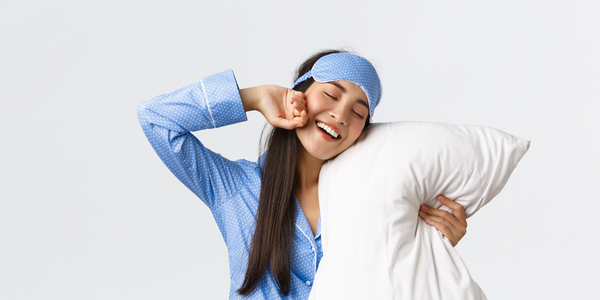

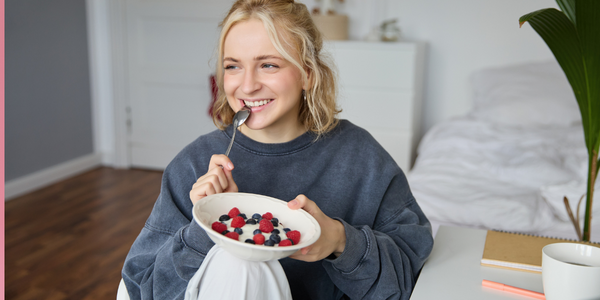

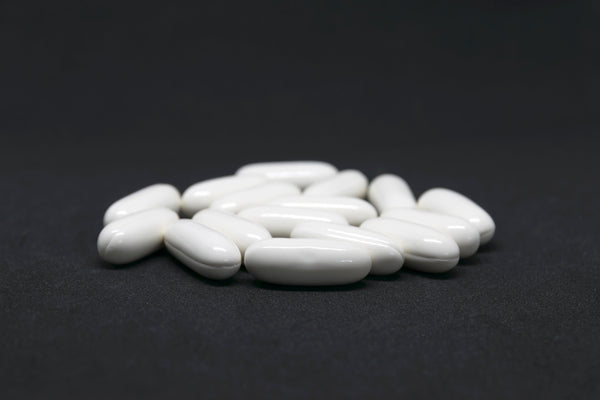
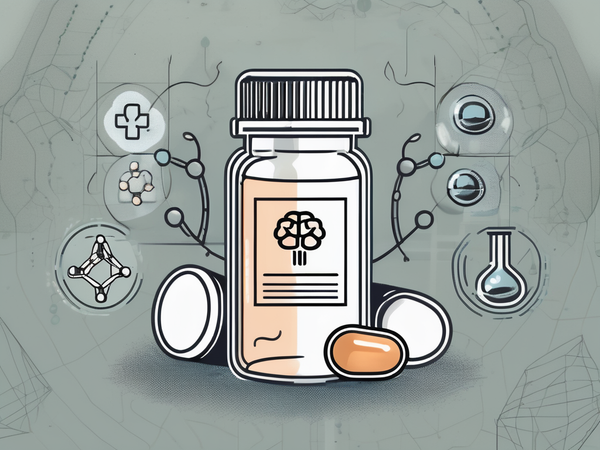


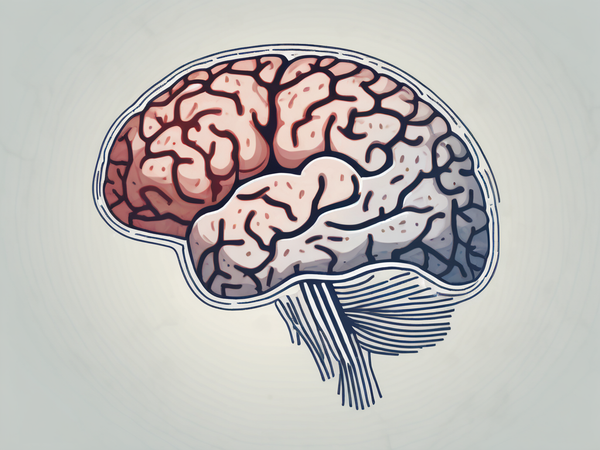






 DOWNLOAD NOW
DOWNLOAD NOW
